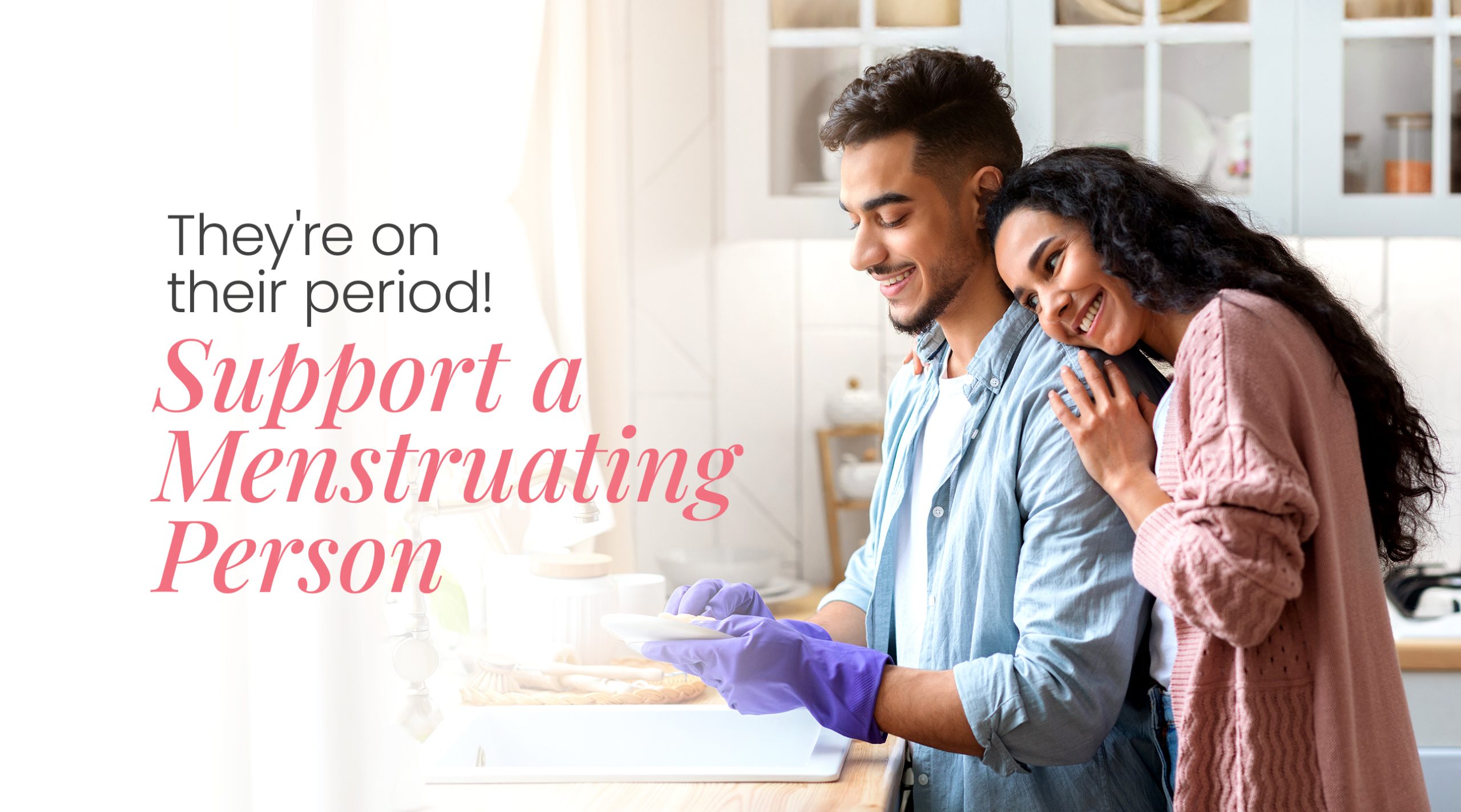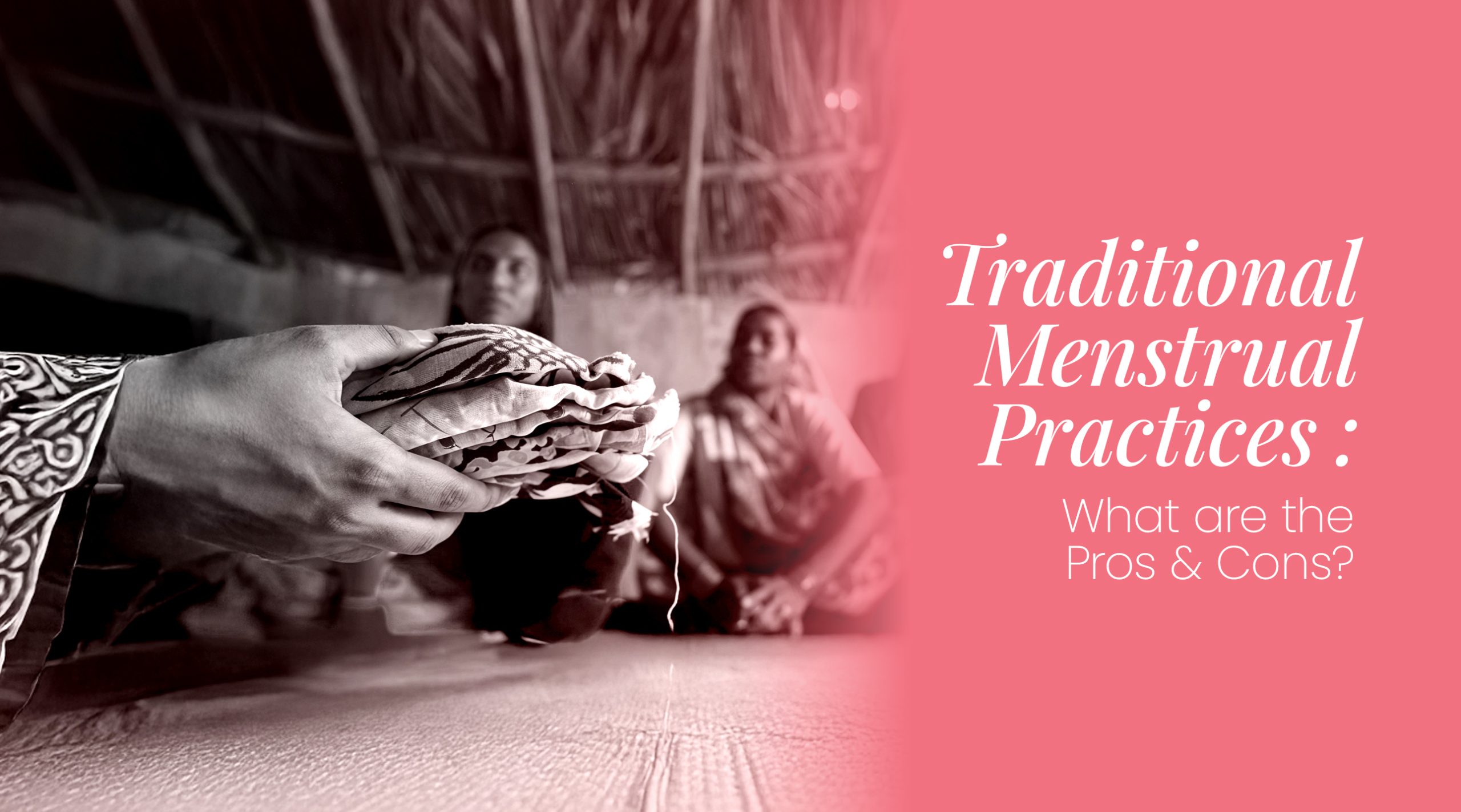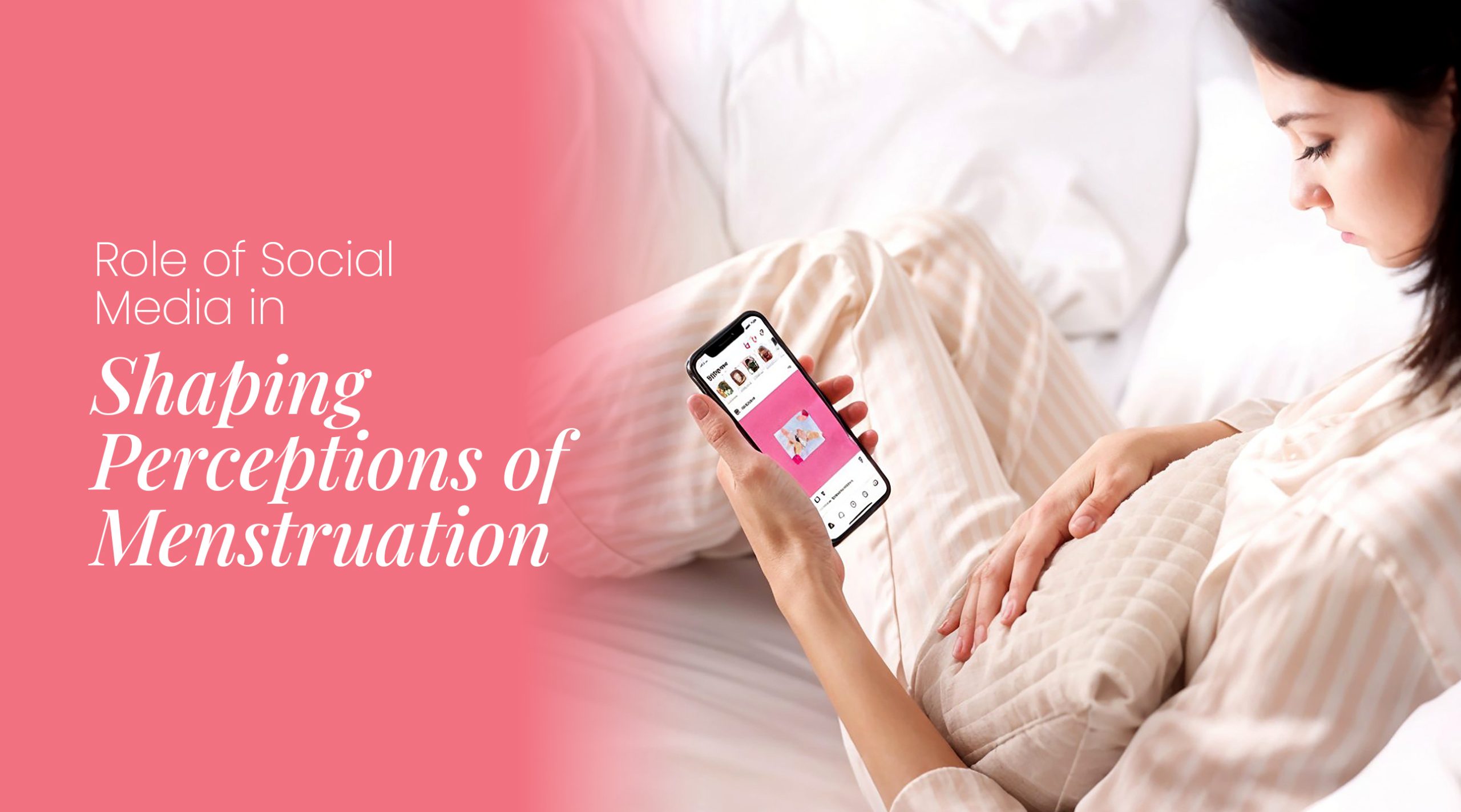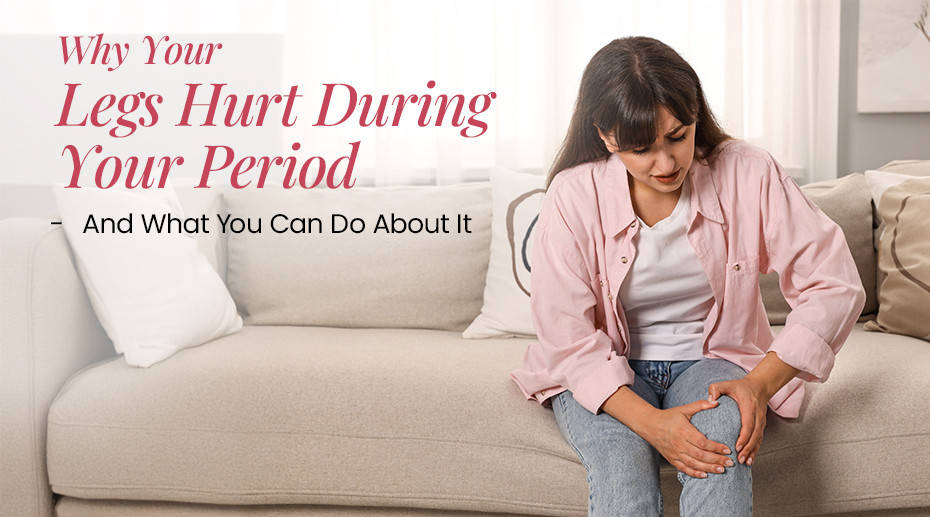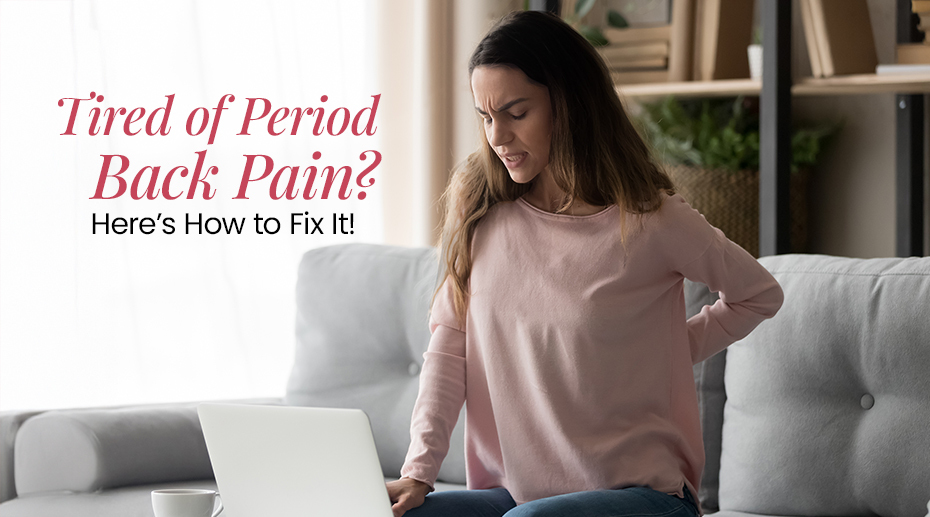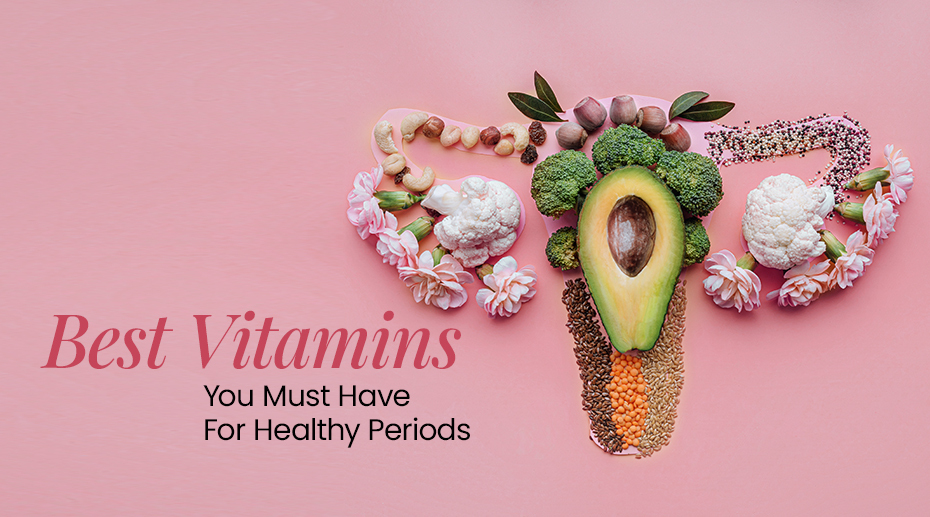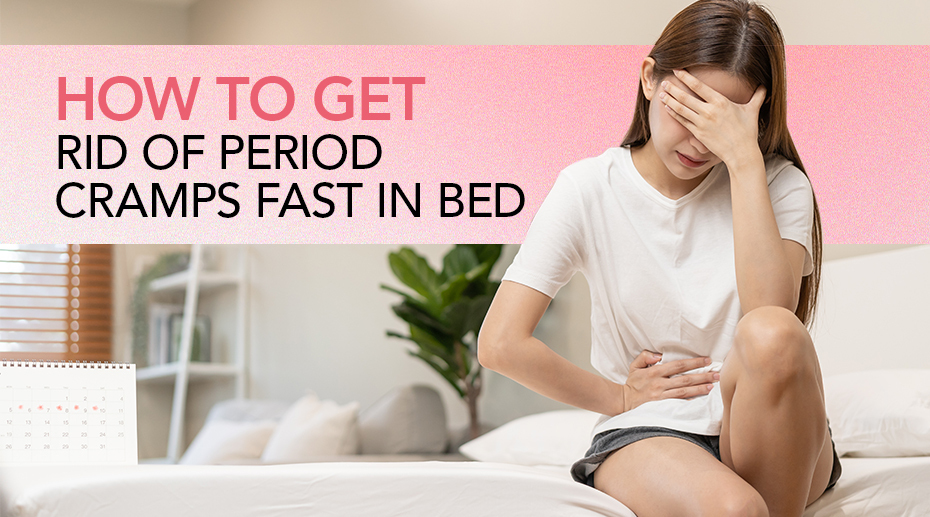
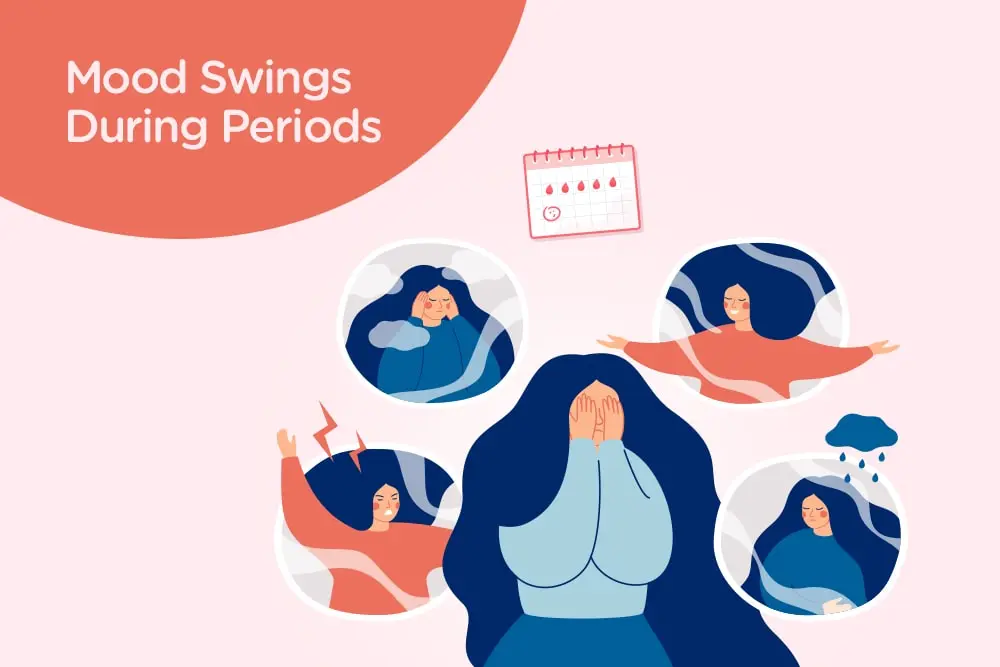
Mood Swings During Periods
In today’s times, we are well aware that a female needs to be well-treated physically and emotionally during that time of the month. Period can make her unstable, temperamental, and pessimistic without any particular reason. One moment she feels ok, cheerful, and optimistic, and the next minute, something minor makes her feel irritable, angry, and sad. Premenstrual syndrome (PMS) is characterised by physical and emotional signs that are visible around the time of menstruation. Emotional mood swings include irritation, anger, crying, or sudden oscillations of extreme emotions. Some can even go into anxiety and depression. These signs can start a week or so before the menses and can last until menses. They can affect your daily life, including your choice of food and the way you interact with your partner or the people around you.
Conditions for mood swings Before Periods
Let us understand the main conditions that make you feel moody before your period and how they affect your health.
Premenstrual Dysphoric Disorder (PMDD)
PMDD is similar to PMS, but its emotional symptoms are harsher. For some, the mood swings are intense and obstruct daily life. A recent study revealed that about 75 per cent of women have PMS during their early years and that only 3 to 8 per cent have PMDD.
Premenstrual Exacerbation
This refers to the multiplied symptoms of an existing condition like anxiety, bipolar disorder, depression, etc., which become worse around the time of the period. About 50% of all women who are treated for PMS either have depression or anxiety.
Why Mood Swings Happen During Periods?
Though there are no defined reasons for moodiness around the time of menstruation, it is widely believed that hormones have a vital role to play. However, exactly which hormones are involved and their respective effects on other hormones and systems are still undefined.
Science has proved that both oestrogen and progesterone are at their lowest a few days prior to menses. Oestrogen fluctuates and at around day 14 of the menstrual cycle, it is at its peak; causing ovulation. Oestrogen is an important hormone and is somewhat responsible for regulating our mood. So, while ovulating, an optimal amount of this hormone ensures the highest number of chances to conceive. After ovulation, oestrogen starts to decline. It fluctuates over the next two weeks, eventually reaching its lowest point to initiate menstruation. These fluctuations are critical to female health. The level of oestrogen is important along with the ratio of oestrogen to progesterone for healthy well-being. If this ratio changes, it can cause a hormonal imbalance in women’s body, which leads to emotional and physical issues.
Low levels of oestrogen are associated with mood swings that include irritation and anger, while high progesterone may cause sadness, weeping, anxiety, and low self-confidence. Serotonin is also considered responsible for this. A drop in serotonin is believed to cause erratic behaviour. It is a neurotransmitter that aids in regulating mood, sleep routine, and appetite. The interaction and metabolism of other hormones during menses are also important to understand, but science hasn’t yet cracked this completely.
How to Control Mood Swings During Periods
You can always control your emotions during menstruation by implementing a few diet and lifestyle changes. Let us understand how.
Diet
A healthy, holistic diet improves your mental and physical immunity. Having a small number of healthy meals every 3 hours will keep your blood sugar more stable. Wobbly blood sugar makes you feel irritable and disinterested. So it is advisable to reduce or avoid this. Protein keeps you going through the day. Ensure that you incorporate its sources, like lean meat, eggs, fish, beans, and lentils. Healthy fats boost sex hormones and neurotransmitters like serotonin. The daily intake of 1200 mg of calcium shows amazing results. Milk, yoghurt, cheese, green leafy vegetables, fortified orange juice, cereals, etc. are good sources of calcium. Vitamin B6 also helps to control PMS symptoms. Fish, chicken, turkey, fruits, etc. are healthy sources of vitamin B6. Try avoiding junk food on these days to keep negativity at bay. Eating well automatically helps you feel better.
Exercise
Making exercise a lifestyle is as important as food in your life. Long-term health benefits from 30 minutes of any kind of exercise on a daily basis do miracles. It promotes good health of both the body and the mind! Yoga and meditation are suggested during this time period as they exert positive effects on mood. Exercise releases feel-good chemicals called endorphins, which can in turn boost your mood.
Sleep
Inadequate sleep can ruin your mood if you’re around your period time. For good mental and physical health, try to get at least seven to eight hours of continuous sleep per night. Not getting enough sleep adversely affects your mind and body. Lack of sleep makes you feel restless, demotivated, and bad-tempered even at the best of times. Lack of sleep around your period will create hormonal turmoil.
Caffeine
Excess caffeine around the time of your period can wreck you to your limit. Caffeine stimulates the sympathetic nervous system and releases adrenaline hormones. Caffeine can make you feel tense, stressed out and can put pressure on your adrenal glands.
Stress management
Stress triggers all emotional and physical problems. If it is not managed well, it can worsen mood swings. Deep breathing exercises, meditation, or yoga calm the mind, body, and soul, especially when PMS symptoms are coming on.
Medications & Herbal Remedies to Control Mood Swings During Periods
Mood swings can be controlled by medication. You can try herbal remedies. If the symptoms are too severe, then taking the prescribed medication is advised.
If you have made some positive dietary and lifestyle changes but feel you still need a little extra help to fight your emotional turmoil, then herbal remedies could be an option.
Agnus castus aids in the relief of PMS symptoms such as irritability, mood swings, water retention, sore breasts, and painful periods. It supports and maintains a good progesterone level, which in many cases is overpowered by oestrogen. On the other hand, if oestrogen is low, you can suffer from low mood, low self-confidence, and light or irregular periods. In this case, fermented soy isoflavones can do wonders in diligently correcting this imbalance. There are also stress-relieving herbal drops available that can control your mood swings. It contains organic Valerian and hops. These herbs reduce stress and mild anxiety.
You need to note that if you are taking hormonal contraceptives such as the pill, hormone-balancing herbal remedies may not work for you.
One of the ways to treat mood swings is to take an antidepressant. Selective serotonin reuptake inhibitors (SSRIs) are widely used antidepressant to treat PMS-related mood swings. They help in blocking the absorption of serotonin. This increases the volume of serotonin in your brain. General serotonins include the below:
- Citalopram (Celexa)
- Fluoxetine (Prozac and Sarafem)
- Paroxetine (Paxil)
- Sertraline (Zoloft)
Other antidepressants that work on serotonin include:
- Duloxetine (Cymbalta)
- Venlafaxine (Effexor)
You should take these only under the prescription of a doctor. The doctor shall examine and suggest the correct dosage after analysis of the condition.
Take Away
Periods and mood swings, thus, are more or less synonymous with each other. Females have to pass through this rough patch every month, and therefore, we all need to deal with it with utmost care. Good support from the family and peers, along with correct lifestyle guidance, can go a long way in making this rough patch smooth.


